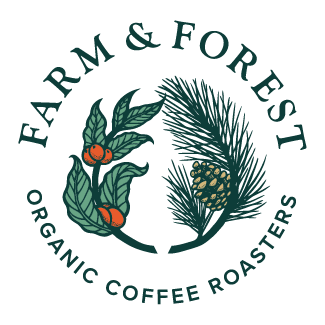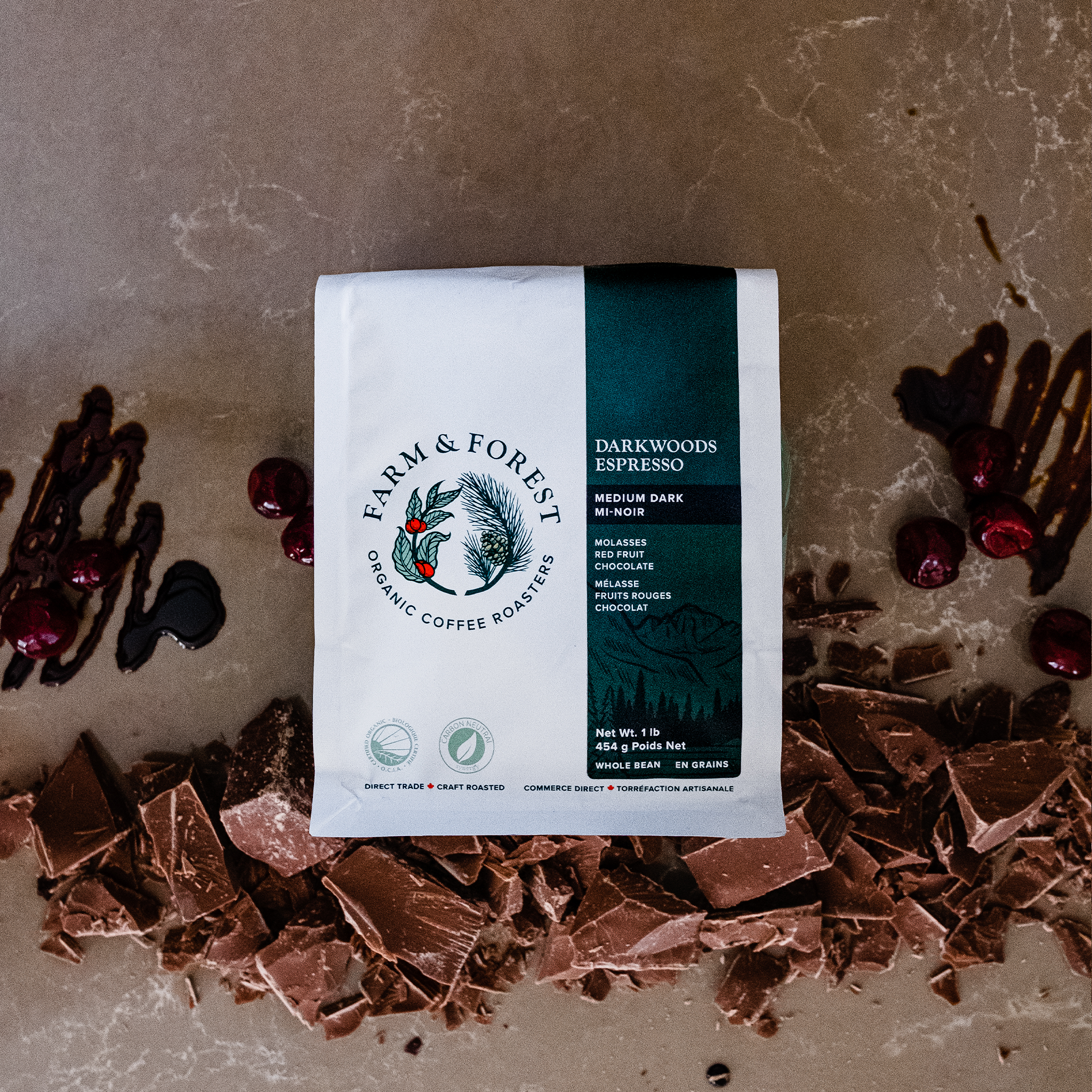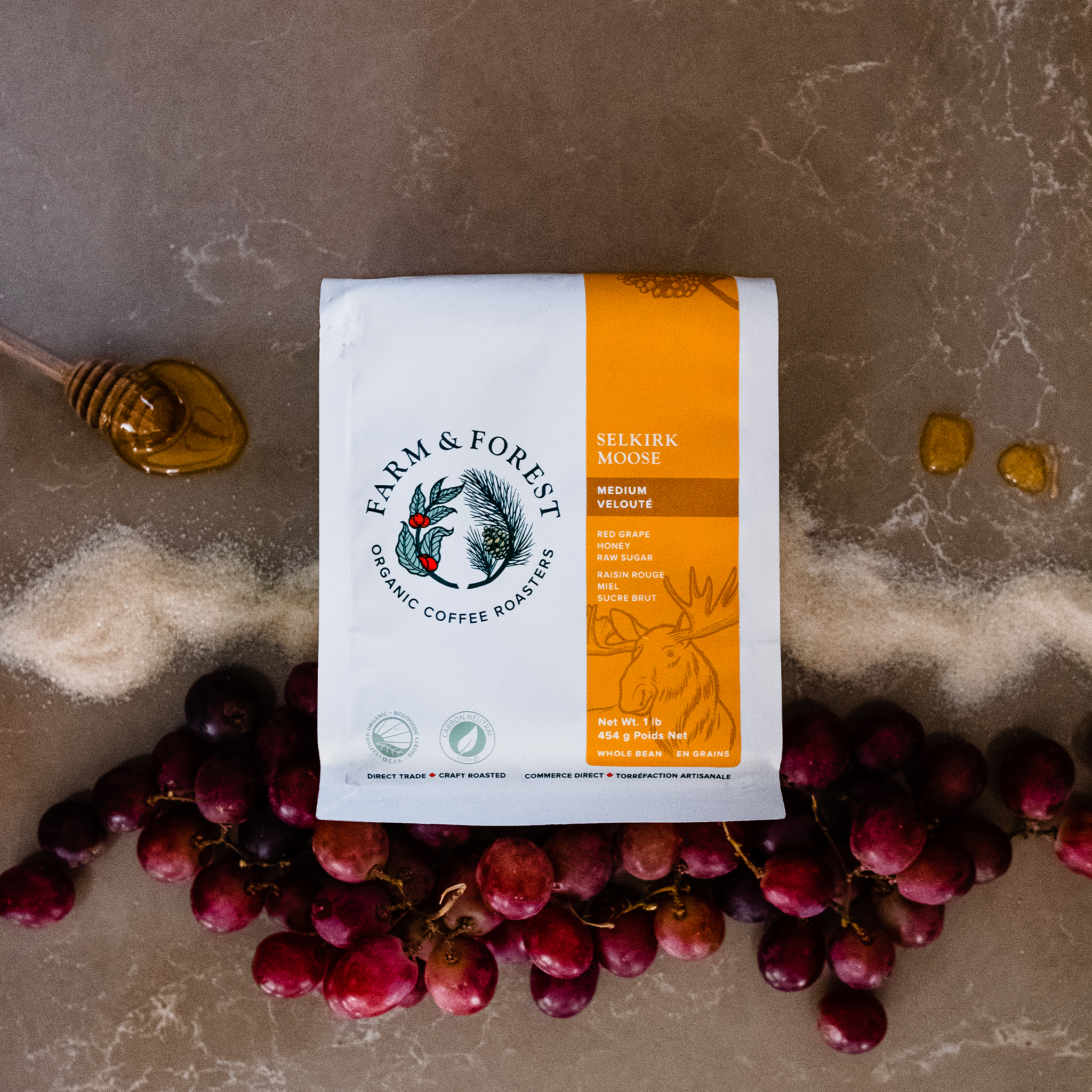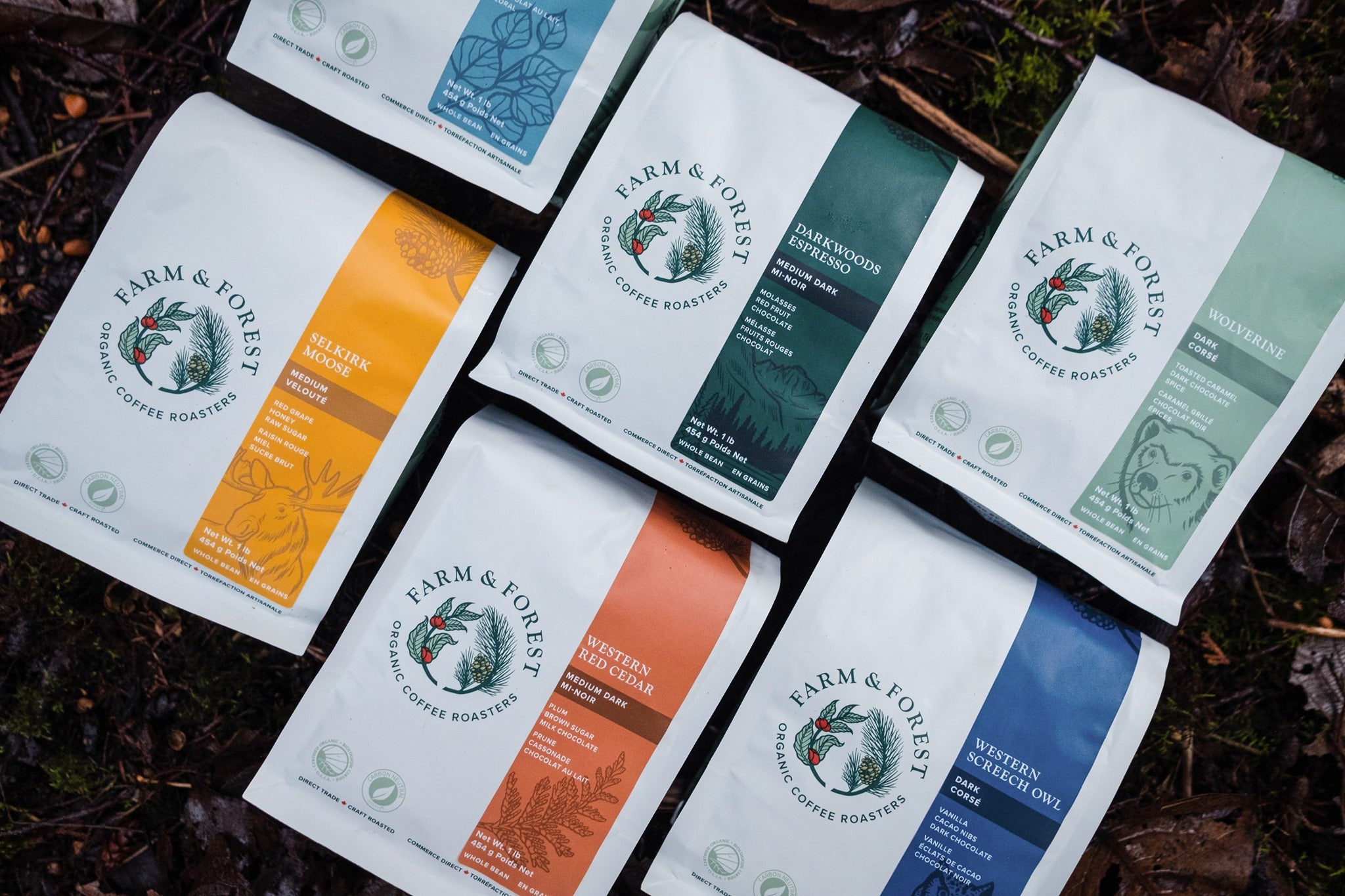Direct Trade Coffee: What Makes It Great and Why Is It Gaining Popularity Among Coffee Enthusiasts
As consumers become more mindful of the origins of their food and drinks, coffee lovers, in particular, are exploring the world of direct-trade coffee. This approach goes beyond taste and aroma, it reflects an ethos of sustainability, fairness, and transparency. But what exactly is direct trade coffee, what makes it great, and why is it gaining so much popularity among coffee enthusiasts? Let's dive into the details.
In this article:
- What is Direct Trade Coffee?
- What Makes Direct Trade Coffee Great?
- Why is Direct Trade Coffee Gaining Popularity?
- Conclusion: Why You Should Try Direct Trade Coffee
What is Direct Trade Coffee?
Direct trade coffee refers to a sourcing model in which coffee roasters buy directly from coffee farmers or producers, bypassing traditional middlemen such as importers or brokers. Unlike "fair trade," which focuses on setting fair prices and working conditions through a certification system, direct trade emphasizes building direct relationships between the roaster and the farmer.
This model often results in higher prices for farmers, better quality coffee for consumers, and a stronger sense of trust and collaboration between both parties. In simple terms, direct trade coffee focuses on transparency, quality, and ethical sourcing, where coffee roasters actively engage with the farmers who grow the coffee.
What Makes Direct Trade Coffee Great?
Several key factors make direct trade coffee stand out from other sourcing models:
Higher-quality coffee: Direct trade is often associated with specialty-grade coffee, meaning that the beans are of the highest quality. Because roasters build direct relationships with farmers, they can communicate their preferences and standards for quality.
This relationship also allows for better collaboration on improving coffee farming techniques and harvesting processes, which directly impacts the flavor profile of the coffee.
Farmers who participate in direct trade arrangements are more incentivized to produce exceptional coffee, as they often receive higher prices for their beans compared to other sourcing models.
Ethical and fair compensation for farmers: One of the biggest issues in the global coffee industry is the low wages that many coffee farmers receive. In conventional trade models, farmers are often underpaid, leading to economic challenges in coffee-growing regions. With direct trade, farmers receive higher compensation because middlemen are eliminated, and roasters are willing to pay more for premium-quality beans.
This fair compensation enables farmers to invest in better farming practices, equipment, and the well-being of their communities. Many coffee enthusiasts are drawn to direct trade for its ethical implications, knowing that the money they spend on a cup of coffee is directly benefiting the farmers who grew it.
Transparency in the supply chain: Transparency is a key tenet of direct trade. When roasters establish direct relationships with farmers, consumers have greater visibility into where their coffee comes from, how it’s grown, and the ethical practices involved.
This transparency is highly appealing to today’s consumers, who increasingly want to support brands that are open about their sourcing practices and make ethical, environmentally responsible decisions.
By purchasing direct trade coffee, coffee lovers can trace the journey of their coffee from the farm to their cup, enhancing their overall coffee experience.
Sustainable farming practices: Direct trade relationships often prioritize sustainable farming practices. Because roasters and farmers work closely together, there is an emphasis on using environmentally friendly methods that preserve the land and ensure long-term coffee production. This can include using shade-grown techniques, reducing the use of harmful pesticides, and employing organic farming practices.
For coffee enthusiasts who care about environmental sustainability, direct trade offers peace of mind knowing that their coffee was grown with a focus on preserving the planet.
Why is direct trade coffee gaining popularity?
The growing popularity of direct trade coffee can be attributed to several trends in consumer behavior, social consciousness, and the coffee industry itself. Here are some reasons why more and more people are turning to direct trade coffee:
Increased demand for specialty coffee: The global demand for specialty coffee has been rising steadily over the past decade. Consumers are no longer satisfied with generic, low-quality coffee. They seek unique flavor profiles, single-origin beans, and meticulously crafted coffee drinks. Direct trade coffee often represents the crème de la crème of the coffee world, offering exceptional quality that caters to the discerning tastes of specialty coffee drinkers.
As consumers continue to refine their palates and seek out new coffee experiences, direct trade provides an avenue for them to explore complex, flavorful coffees from regions all over the world.
Greater awareness of ethical sourcing: In the age of conscious consumerism, people are paying more attention to the ethics behind the products they buy. This includes coffee, one of the most traded commodities globally. Coffee enthusiasts are more aware than ever of the challenges faced by coffee farmers, such as poverty and climate change. Direct trade coffee offers a solution by ensuring that farmers are fairly compensated and that ethical sourcing practices are followed.
For consumers who want to align their purchases with their values, direct trade coffee provides a clear ethical advantage.
Desire for transparency and connection: Consumers are increasingly seeking transparency in the products they purchase, and direct trade coffee provides this by offering a clear line of sight from the farm to the cup. Roasters who participate in direct trade relationships often visit farms, share stories about the farmers they work with, and provide detailed information about the beans they roast.
This connection allows coffee drinkers to feel more engaged and informed about the journey of their coffee, which enhances their overall coffee experience.
Conclusion: Why you should try direct trade coffe?
Direct trade coffee is more than just a trend, it’s a movement toward better coffee, ethical sourcing, and sustainability. For coffee enthusiasts, it offers the opportunity to enjoy some of the finest coffee in the world while supporting the farmers who grow it in a fair, transparent, and sustainable way.
As the demand for specialty coffee continues to grow, direct trade is likely to remain a popular and important part of the coffee landscape. Whether you're drawn to it for its superior quality, its ethical sourcing, or its focus on sustainability, direct trade coffee is worth exploring. Next time you sip on a cup, you’ll know that every bean has a story—and that story begins with a farmer who’s justly compensated for their work.
So, why not make your next cup of coffee a direct trade one? Here is our selection that not only is sourced directly, but is carbon-neutral, certified organic, and supports protecting Canadian biodiversity!
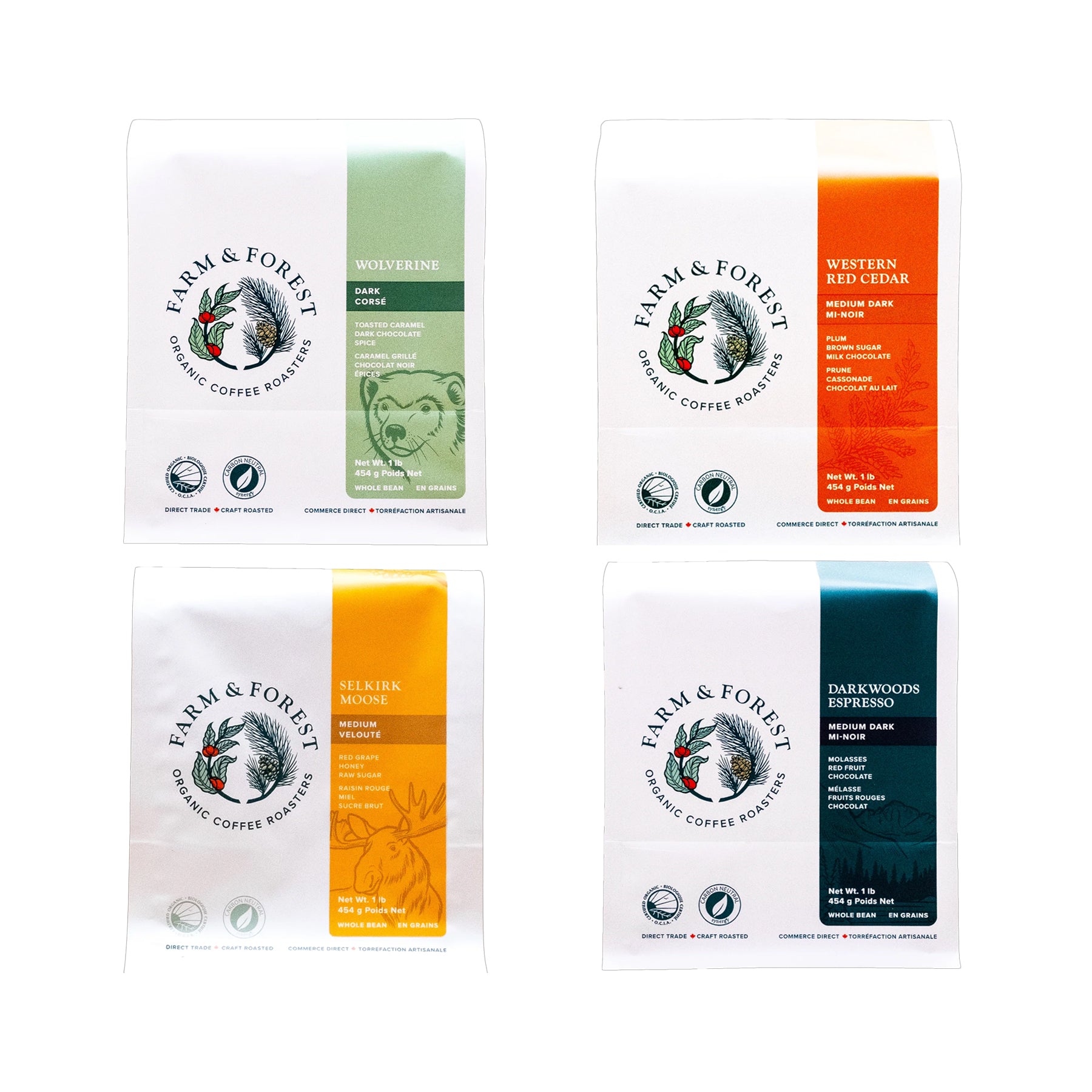
Sampler Pack 4x 200g: Wolverine, Western Red Cedar, Selkirk Moose, Dark Woods Espresso
Sold out
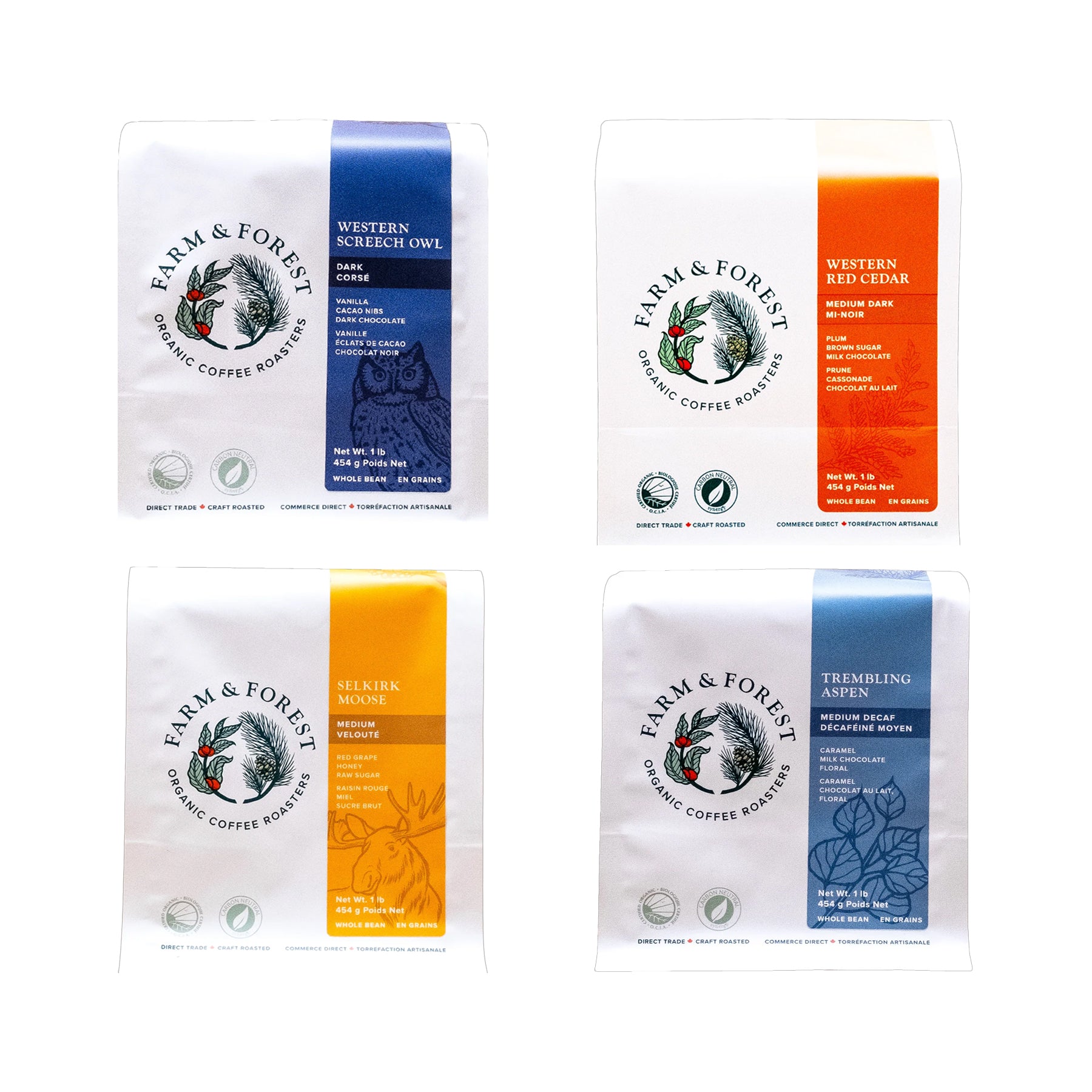
Sampler Pack 4x 200g: Western Screech Owl, Western Red Cedar, Selkirk Moose, Trembling Aspen
Sold out
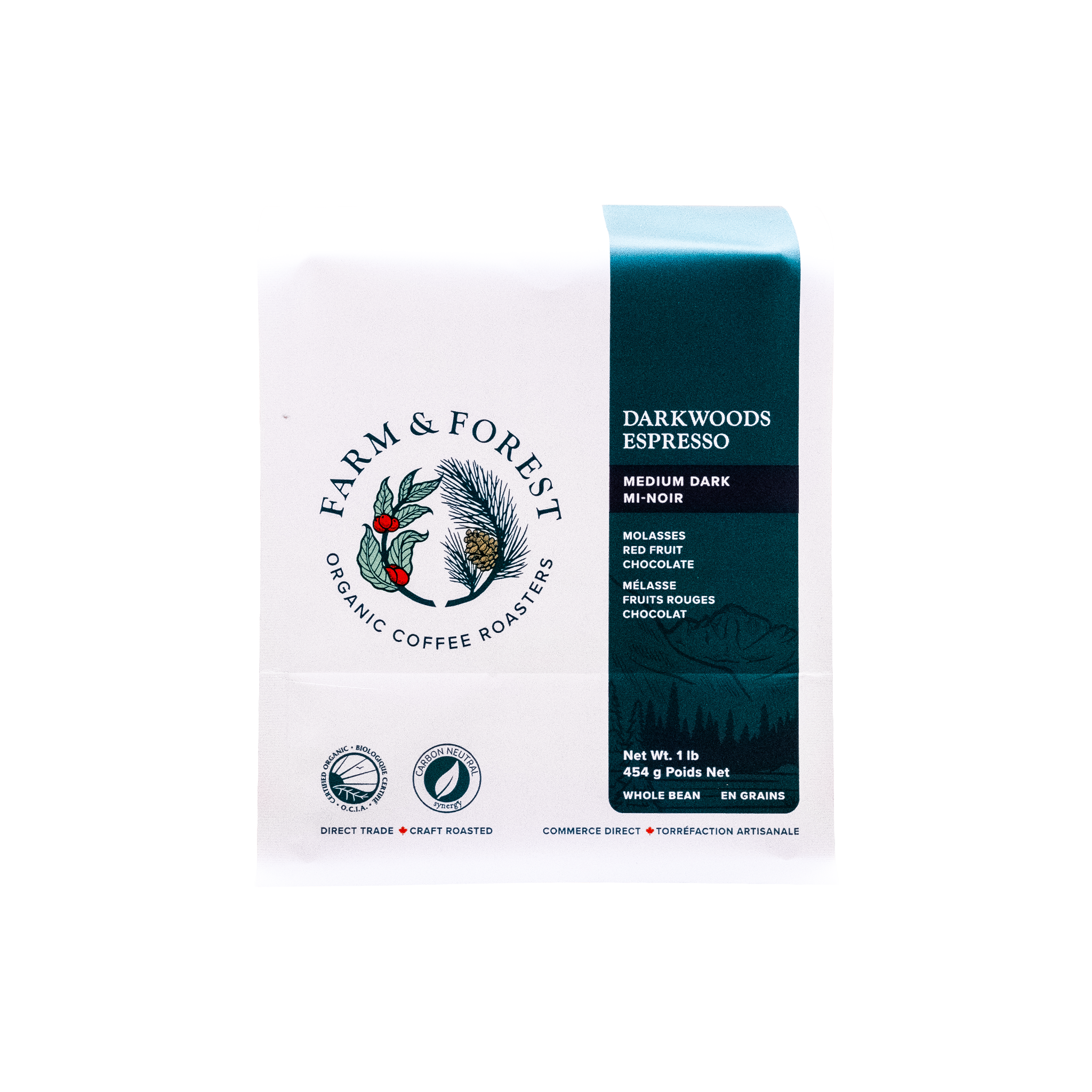
Organic Darkwoods Espresso
Sold out
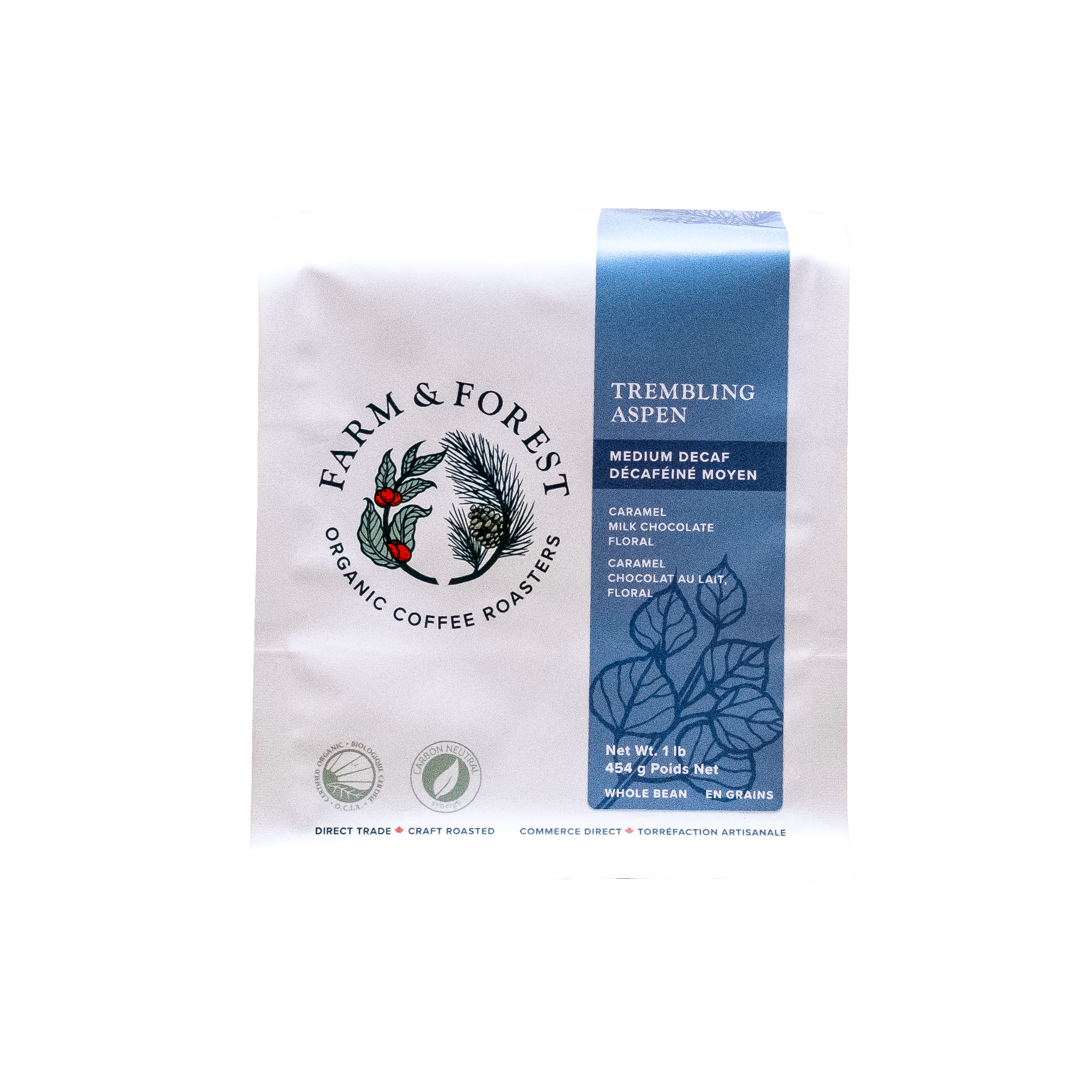
Organic Trembling Aspen SWP Decaf Coffee
Sold out
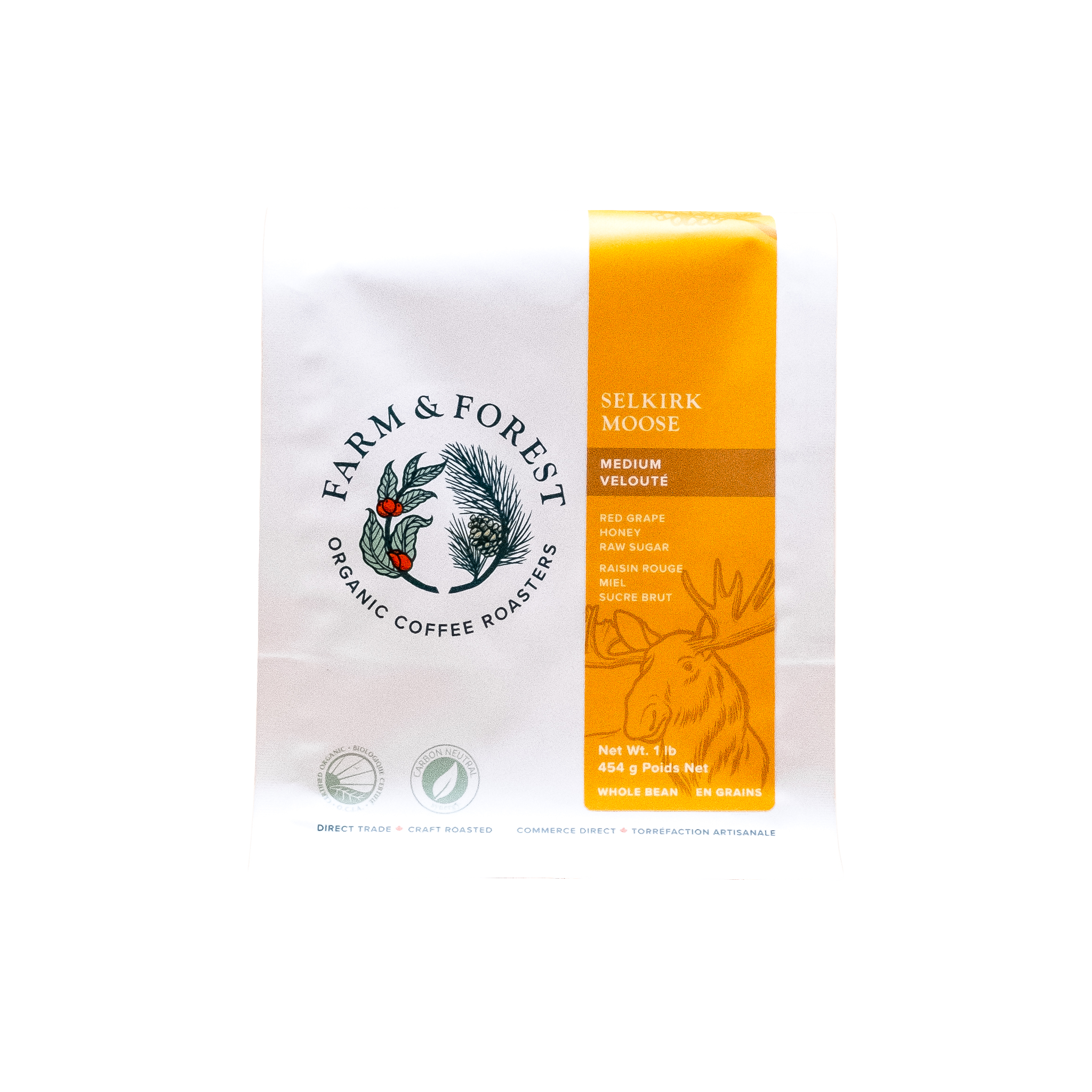
Organic Selkirk Moose Coffee
Sold out
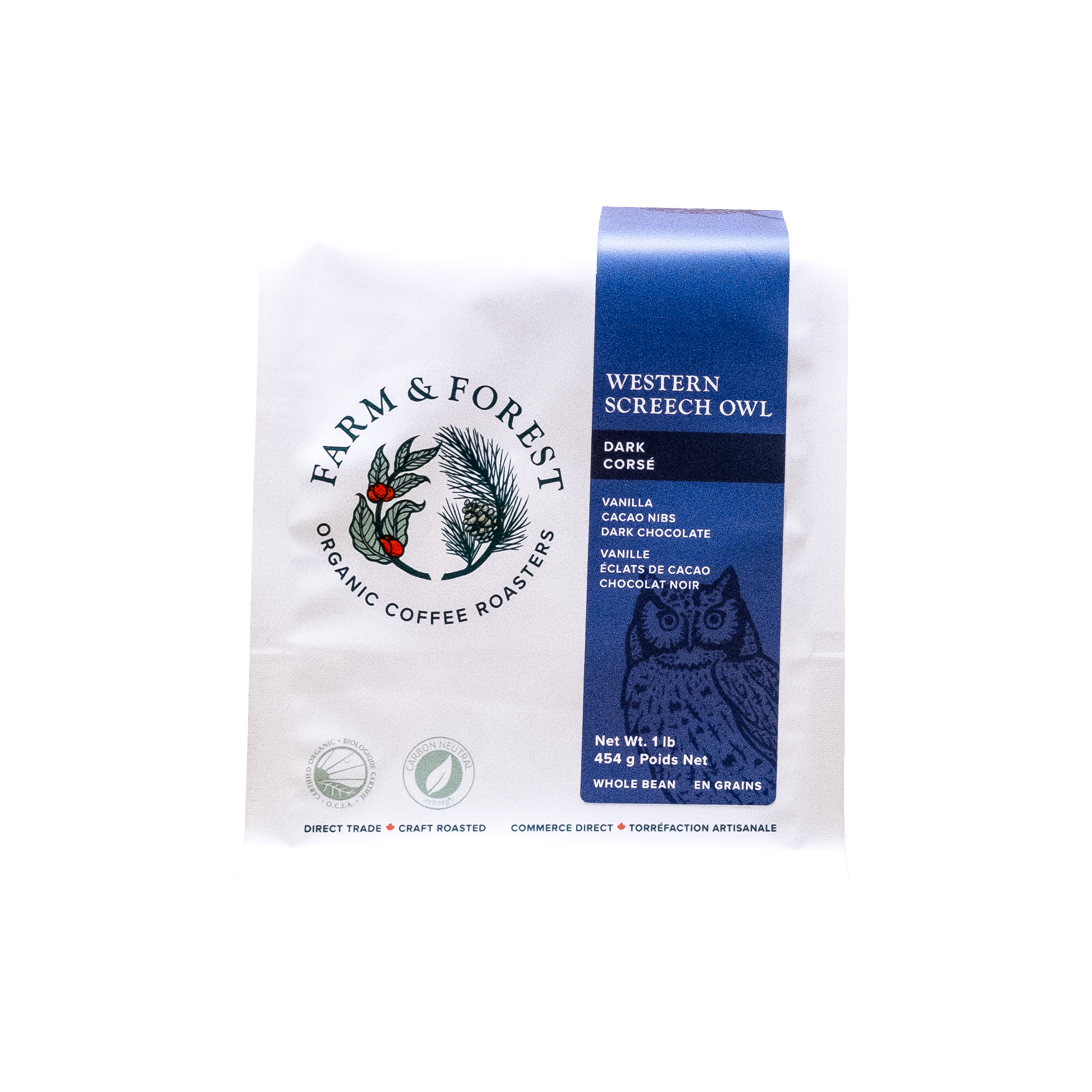
Organic Western Screech Owl Coffee
Sold out
